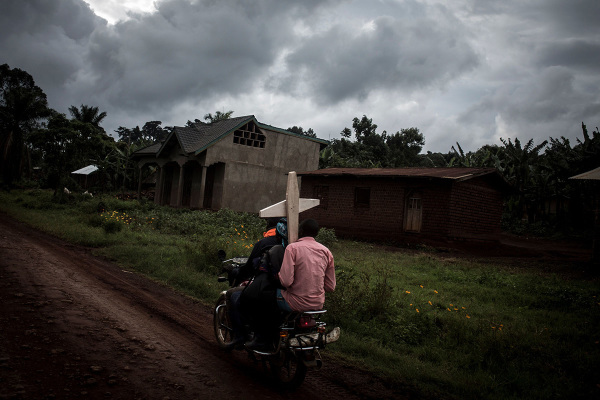Obama's Contraceptive Mandate Clearly Weak, Little Sisters' Lawyer Says After Supreme Court Arguments (Interview)

Bound4LIFE: Does the Affordable Care Act actually mandate insurance plans cover abortion-inducing forms of contraception?
Adèle Keim: That's one of the saddest things about this situation. This mandate was not in the Affordable Care Act when it passed. All the statute required was that health care plans cover preventative services for women. Congress then delegated authority to a sub-agency of HHS to determine what should be on that list of women's health services.
This sub-agency then enlisted the help of the Institute of Medicine, which held hearings that included pro-abortion groups like Planned Parenthood. The Institute of Medicine provided recommendations on which preventative services to be covered without cost-sharing.
Despite pushback from pro-life organizations and religious groups, the final report recommended including contraceptives (including contraceptives like the week-after pill) with no cost-sharing; those recommendations were immediately adopted by HHS.
Bound4LIFE: Why should pro-life advocates be concerned that this case will affect abortion policy beyond simply contraception?
Adèle Keim: The federal government's position in litigation has been it's not abortion unless the embryo has already been implanted. So forms of contraception that act primarily on an embryo prior to implantation or prevent implantation are not considered an abortion, because there wasn't an established pregnancy.
But of course, there wasn't an established pregnancy because the uterine wall was made to be inhospitable by contraceptives. For Protestants and Catholics who believe that life begins at conception, that implantation line does not change the moral calculus: they do not want to be involved in covering these services.
The State of California just required that HMOs cover surgical abortions — even if the HMO plan is serving churches. Now there's a series of lawsuits against the state brought by churches. Planned Parenthood and the ACLU are two of the groups that lobbied California to adopt that rule … the same groups that lobbied for the inclusion of the contraceptive mandate in federal law.
So the same group that opposes the Little Sisters in this case — Planned Parenthood— has argued in California that not even churches have the right to have abortion-free health plans. We can see where this is heading if we do not stand with the Little Sisters and defend religious conscience rights.
Bound4LIFE: How should we view religious liberty according to the U.S. Constitution?
Adèle Keim: Religious liberty is not a trump card, rather it is a balanced right in our system. But what we do know is that it is a right and it has to be balanced; that's something the government seems to be missing in this case.
If religious liberty means anything, it means that if the government is going to make exceptions to a rule for administrative convenience or cost — as it has with for-profit companies — then it has to be at least as respectful towards people who have a religious objection to the rule.
Bound4LIFE: As a person of faith, how does prayer guide your life and work?
Adèle Keim: I think prayer helps orient you towards things that are lasting. It helps you set priorities in a world constantly trying to sway you one way or another. It helps you know, moment to moment, how to invest your time in things that are eternal — instead of on things that are going to fade.
I am inspired by how the Little Sisters emerged in the aftermath of the French Revolution. A servant woman named Jeanne Jugan grew weary of seeing elderly people abandoned and forced to beg on the streets. One day, she picked up an elderly woman, carried her home and said, "I will go out begging in your place." Ever since that day in 1839, the Little Sisters of the Poor have had one goal in mind: to serve the elderly poor as though they were Christ himself.
For these women, their whole lives are oriented around the times of prayer they have everyday. Even in the midst of running these homes for the elderly poor — and many of them are professionally trained nurses — still they set aside time to pray and worship.
Prayer guides everything the Little Sisters of the Poor do, and we can see that in what they've accomplished.





















